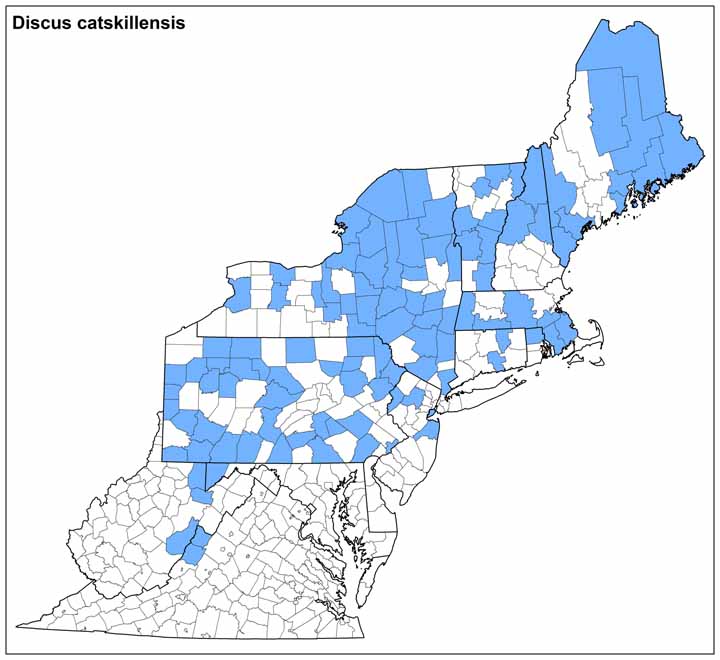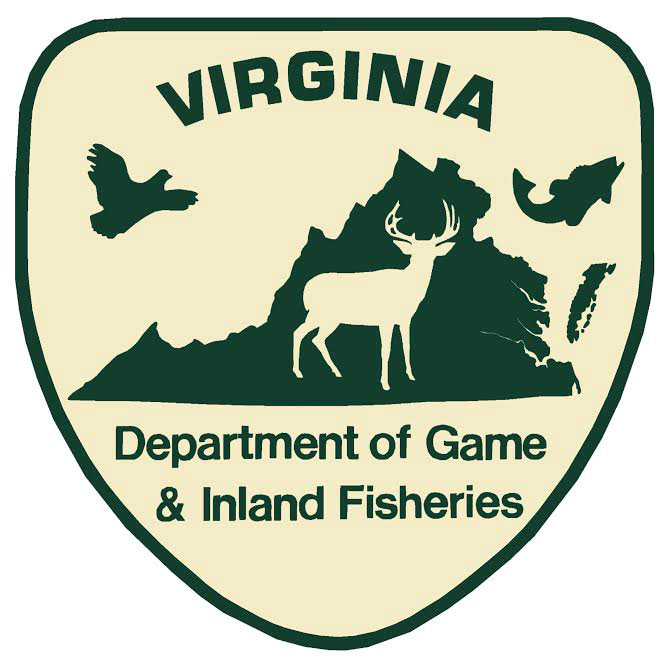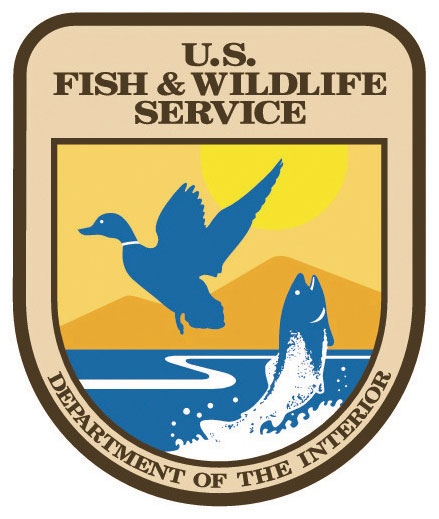Land Snails
.jpg)
.jpg)
.jpg)
Photo(s): Three views of a Discus catskillensis shell, © Jeff Nekola. Note that the aperture edge is broken, as often happens with thin-lipped specimens.
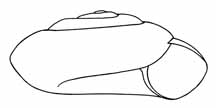
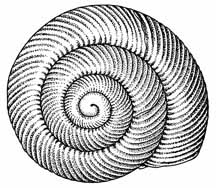
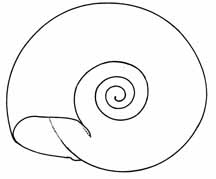
Illustrations © Kathy Schmidt from her series "Land Snails of New York State."
Click photo(s) to enlarge.
Discus catskillensis (Pilsbry, 1896)
Family: Discidae
Common name: Angular Disc
Identification
Width: ~5.0 mm
Height: ~2.5 mm
Whorls: 4
This species has a flattened, heliciform shell. The body whorl and aperture are angular, and the apex is mildly convex. The umbilicus is open, and the lip thin (not reflected). The surface is sculptured with strong radial ridges. Discus catskillensis and D. whitneyi are similar and are considered to be “transitional” to each other (Pilsbry, 1948).
Ecology
Discus catskillensis is found among logs, stumps, rock talus, and dead leaves in forests; or small openings and old fields, especially if there is cover such as logs or old boards. In the southern part of its range it is typically found at higher elevations, in passes and on ridgetops, though they may also be found at lower elevations, especially in shaded valleys. In Maine, D. catskillensis was one of the most common snails of its size, being found in most habitats (Nekola, 2008).
Taxonomy
Synonyms for D. catskillensis include: Discus cronkhitei catskillensis, Pyramidula cronkhitei catskillensis, and Pyramidula striatella catskillensis.
Distribution
This species is present in much of the northeastern United States and southeastern Canada. It is not widely dispersed in Virginia, having been found only on the border of West Virginia, in the counties of Highland and Bath.
Conservation
NatureServe Global Rank: G5
Greg Kimber, Ken Hotopp 7/2012
Range Map (click to enlarge)